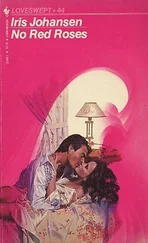Iris Murdoch - An Unofficial rose
Здесь есть возможность читать онлайн «Iris Murdoch - An Unofficial rose» весь текст электронной книги совершенно бесплатно (целиком полную версию без сокращений). В некоторых случаях можно слушать аудио, скачать через торрент в формате fb2 и присутствует краткое содержание. Жанр: Классическая проза, на английском языке. Описание произведения, (предисловие) а так же отзывы посетителей доступны на портале библиотеки ЛибКат.
- Название:An Unofficial rose
- Автор:
- Жанр:
- Год:неизвестен
- ISBN:нет данных
- Рейтинг книги:4 / 5. Голосов: 2
-
Избранное:Добавить в избранное
- Отзывы:
-
Ваша оценка:
- 80
- 1
- 2
- 3
- 4
- 5
An Unofficial rose: краткое содержание, описание и аннотация
Предлагаем к чтению аннотацию, описание, краткое содержание или предисловие (зависит от того, что написал сам автор книги «An Unofficial rose»). Если вы не нашли необходимую информацию о книге — напишите в комментариях, мы постараемся отыскать её.
An Unofficial rose — читать онлайн бесплатно полную книгу (весь текст) целиком
Ниже представлен текст книги, разбитый по страницам. Система сохранения места последней прочитанной страницы, позволяет с удобством читать онлайн бесплатно книгу «An Unofficial rose», без необходимости каждый раз заново искать на чём Вы остановились. Поставьте закладку, и сможете в любой момент перейти на страницу, на которой закончили чтение.
Интервал:
Закладка:
Randall wished that he was sure that he could say the same of himself. He had said once to Lindsay that they were, in strength, an equal match. He had in the last weeks quietly become aware, in the nebulous inexplicit way in which one realizes such things, that this was not so. He noted in her a barbaric strength which her present finery made subtly more apparent. Lindsay was the stronger, Lindsay was the boss; and even if she herself had not yet realized it, it could not be long before she did. Randall sometimes wondered whether this discovery were not the real source of his discontents. He attempted in any case to survey it with a cool eye. In spite of his anxieties about the present and the past, he had gained, for a further future about which he remained totally agnostic, a little self-confidence. As for the past, he would never know; but people survived. He would certainly survive.
He could not help being disappointed in his performance. He reemembered how much he had admired Lindsay and Emma, and wished to emulate the serene quality of their egoism. He had thought of them as living high up in a region of perfect freedom, in a sort of paradise of the imagination. He had thought of this as some quite different mode of being to which he was prepared to attain even by committing crimes, to which perhaps he was likely to attain especially by committing crimes. But he had not, or had not yet, been able to live up to the promise of those dreams and those early moments. Something in his sloveuly darkened self prevented his attaining the immaculate condition which he had pictured, and for which he had conceived Lindsay as the perfect consort.
What here impeded him was, he was fairly sure, not the demon of morality. It was more like some restless rapacity, a rapacity such as is the mark of mediocrity in art. The great artist is not rapacious. Randall felt restless, he wanted, now more than ever, to have everything; and he could not but picture his life with Lindsay as a perpetual Bight, from Rome to Paris, from Paris to Madrid, from Madrid to New York, from New York to… And as he imagined them thus covering the globe he also put it to himself: the world is large and there are other women in it besides Lindsay.
Randall stubbed out his cigarette. On the table beside the bed was a glass of water, a little pile of aspirins, a detective story, and a toy dog which Lindsay had bought him two days ago at a street market. They had not named it yet. Toby was still packed away in his suitcase. He caressed the other dog and fancied he heard from the cupboard Toby's disapproving barlq. He smiled a little and ate an aspirin. Would he, in the end, ditch Lindsay?
What was he going to do, in the big airy spacious» roture, anyway?
He knew in his heart, and he knew that Lindsay assumed, that he would never be a playwright. Distanced now by so much more of experience and suffering from his plays he realized clearly tbanhey were no good. They were pretentious, m. uddled and insipid. Perhaps he would try his hand once more; but it would be merely an amateurrish game. There was only one thing in the world that he was really good at, and that he would never do again. He saw in a vision the sunny hillside at Grayhallock with its slight haze of green and its myriad little coloured forms and he sighed. Ann.
Through some mechanics of reality the figure of Ann remained steady. But its power was broken. It was this breaking of the power which enabled him to entertain, halflaughingly, a sort of nostalgia. Ann's tyranny was broken, her dead hand was gone. Why had he fretted so in the old days when freedom was, after all, so easy? Perhaps this, and only this, was what Lindsay was for, to free him from Ann; and if it were so it would be justification enough. Whereas Emma's awareness of him still seemed to hover over him like a cloud, Ann's awareness of him had vanished, it was nothing. By passing through extremity, by committing the final crimes, he had freed himself forrever of any concern about what Ann thought. And sometimes he imagined weirdly that this put them into a new and innocent relationnship, as if they could set up house together like Christie and Old Mahon; and he would be the boss then. Or more vividly at other times he pictured himself based on Ann and the roses and having as many other women as he pleased without troubling. Perhaps after all it was there where the new world lay, in some almost impossible fusion whereby he could eat his cake and have it. He knew that these were otlJ. y wild fancies. But it gave him pleasure all the same to think, almost with a perverted tenderness, that now he did not care a fig about what went on in Ann's mind.
The great thing was that there was no hurry. He turned on his side to look at Lindsay and saw that she was stirring and would soon be awake. He looked upon her with love, with a possessive positive love which made nothing of his moments of disloyalty. He prepared his presence, his smile, for her like a table arrayed. In a moment she would open her eyes and draw him instantly to her with a beaming laziness. She always knew deeply and at once where she was and with whom. He waited tenderly for her to awaken. Had he made a terrible mistake? The wonderful thing now was that no mistake was terrible. There was plenty of time, and time would show him what he really wanted to do. He would survive. He could always, and after his own beautiful fashion, return to Ann. Ann would always be waiting.
Chapter Thirty-four
'WELL, Emma, said Hugh, 'what about it?
'Oh that, she said. 'Was I supposed to be thinking it over?
For some weeks now she had managed by a combination of procrastination, feigned illness, and sheer vagueness to see him only infrequently, while the idea was kept up of a continual communication. Much time was spent on the telephone making and unmaking arrangements which rarely matured: which was all mysterious to Hugh, since it seemed that, especially since Emma was not working, she should have nothing in the world to do except to see him. However she patently did not want him to go away and appeared to put considerable energy into tormenting him, and he had to be content with that.
For Hugh the interim had had a sad and haunted character. He shunned society and seemed to wander in a void where tall shadowy figures with ghostly heads loomed over him and vanished. He heard a babble of voices and was at a loss to know whether they were the product of a deranged ear or a wandering mind. He visited his ear specialist and departed from him with his usual contempt. Yet he had his own grip on life and took the time almost after a religious fashion as a suspense to be endured. He took out his old painting equipment, looked at it, and put it away again. He went often to the National Gallery and gloomily visited the Tintoretto which still drew its knot of admirers at lunch-time. Once he stroked it absently, as he had done when it was his, and was savaged by an attendant. He called on Humphrey at Cadogan Place and drank sherry with him and with Penn. Penn was looking better, altogether gayer and more attractive, quite the young man. He had let Humphrey buy him a new suit as a retrospective birthday present. He met them again by accident when they were on their way to the Tower, and saw them distantly another time lunching at Pruniers. He was sorry not to see anything of Mildred, who was the only person he could have talked to, but she was still in the country.
This occasion of visiting Emma he was resolved to make into something of a crisis. He had a sense of a due time, perhaps a significant testing time, having passed: and he feared to fail with her simply through timidity. He had by now sufficiently also a sense of grievance. His need for her did not diminish; and very sweetly now the notion of her as a strange forbidden fruit mingled with the old passion which had so risen from the depths, encrusted and yet the same. She filled his mind, she was his occupation. Though what solution, bringing them together, would crown this time he did not know or trouble too closely to inquire.
Читать дальшеИнтервал:
Закладка:
Похожие книги на «An Unofficial rose»
Представляем Вашему вниманию похожие книги на «An Unofficial rose» списком для выбора. Мы отобрали схожую по названию и смыслу литературу в надежде предоставить читателям больше вариантов отыскать новые, интересные, ещё непрочитанные произведения.
Обсуждение, отзывы о книге «An Unofficial rose» и просто собственные мнения читателей. Оставьте ваши комментарии, напишите, что Вы думаете о произведении, его смысле или главных героях. Укажите что конкретно понравилось, а что нет, и почему Вы так считаете.










